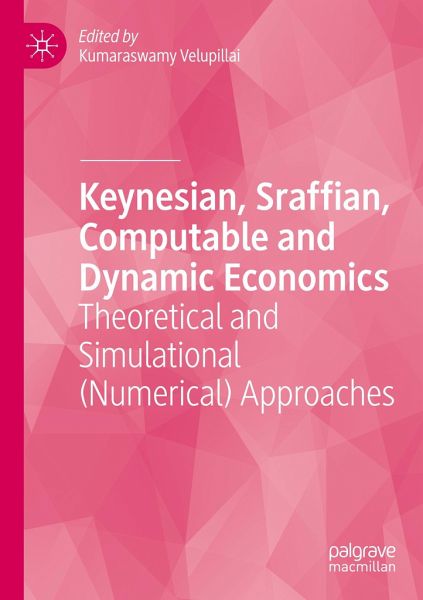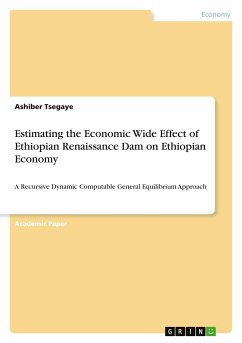
Keynesian, Sraffian, Computable and Dynamic Economics
Theoretical and Simulational (Numerical) Approaches
Herausgegeben: Velupillai, Kumaraswamy
Versandkostenfrei!
Versandfertig in 6-10 Tagen
149,79 €
inkl. MwSt.

PAYBACK Punkte
0 °P sammeln!
This book explores an alternative approach to the conventional, market-based, view of economic theory and economic policy, at theoretical, numerical and applicable levels. The chapters provide a theoretical, empirical, and algorithmic approach to marcodynamics, Sraffian economics, and current policy issues. Post-Keynesian macroeconomics, business cycle theory, the trade cycle, microfoundations, and the Philips Machine are also covered.This book aims to challenge orthodox ideas and provide a lens through which to honour the work of Stefano Zambelli. It will be of relevant to students and academ...
This book explores an alternative approach to the conventional, market-based, view of economic theory and economic policy, at theoretical, numerical and applicable levels. The chapters provide a theoretical, empirical, and algorithmic approach to marcodynamics, Sraffian economics, and current policy issues. Post-Keynesian macroeconomics, business cycle theory, the trade cycle, microfoundations, and the Philips Machine are also covered.
This book aims to challenge orthodox ideas and provide a lens through which to honour the work of Stefano Zambelli. It will be of relevant to students and academics interested in economics.
This book aims to challenge orthodox ideas and provide a lens through which to honour the work of Stefano Zambelli. It will be of relevant to students and academics interested in economics.














